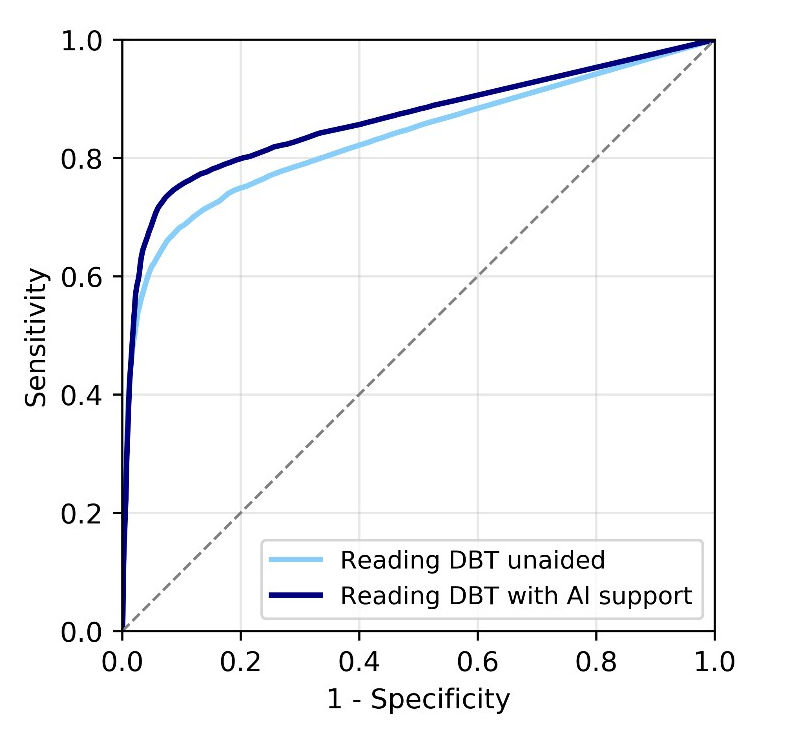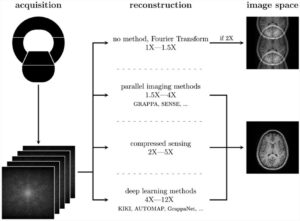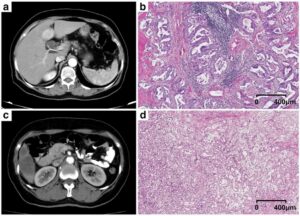In this multi-reader, multi-case study, the authors aimed to investigate whether an artificial intelligence (AI) support system could help to increase the accuracy of breast radiologists reading wide-angle digital breast tomosynthesis (DBT). The study was performed using 240 bilateral DBT exams, with the exams interpreted by 18 radiologists with and without AI support. The authors found that the radiologists improved their cancer detection, while also reducing reading time, when evaluating DBT examinations using an AI reading support system.
Key points
- Radiologists improved their cancer detection accuracy in digital breast tomosynthesis (DBT) when using an AI system for support, while simultaneously reducing reading time.
- The stand-alone breast cancer detection performance of an AI system is non-inferior to the average performance of radiologists for reading digital breast tomosynthesis exams.
- The use of an AI support system could make advanced and more reliable imaging techniques more accessible and could allow for more cost-effective breast screening programs with DBT.
Authors: Suzanne L. van Winkel, Alejandro Rodríguez-Ruiz, Linda Appelman, Albert Gubern-Mérida, Nico Karssemeijer, Jonas Teuwen, Alexander J. T. Wanders, Ioannis Sechopoulos & Ritse M. Mann













